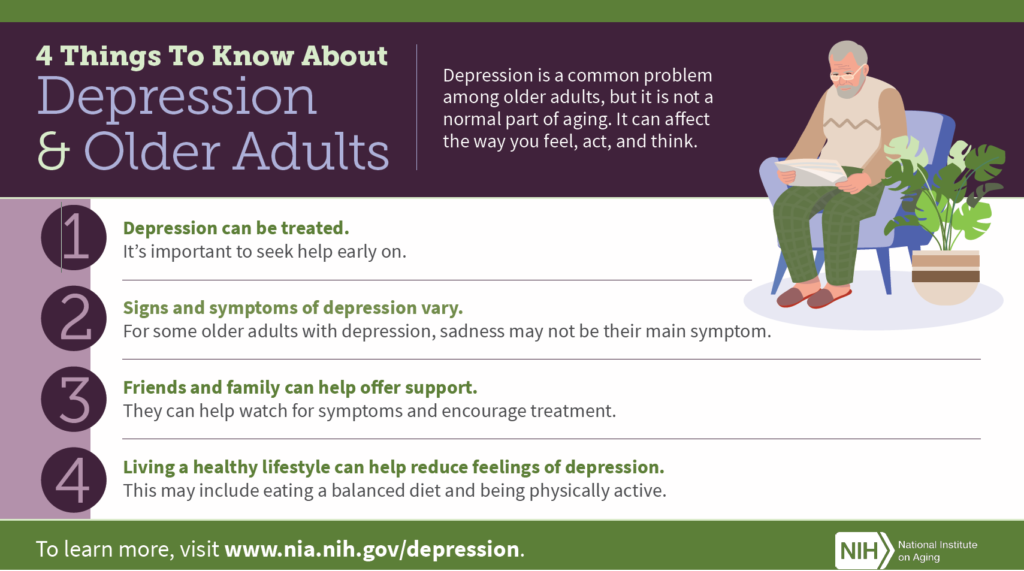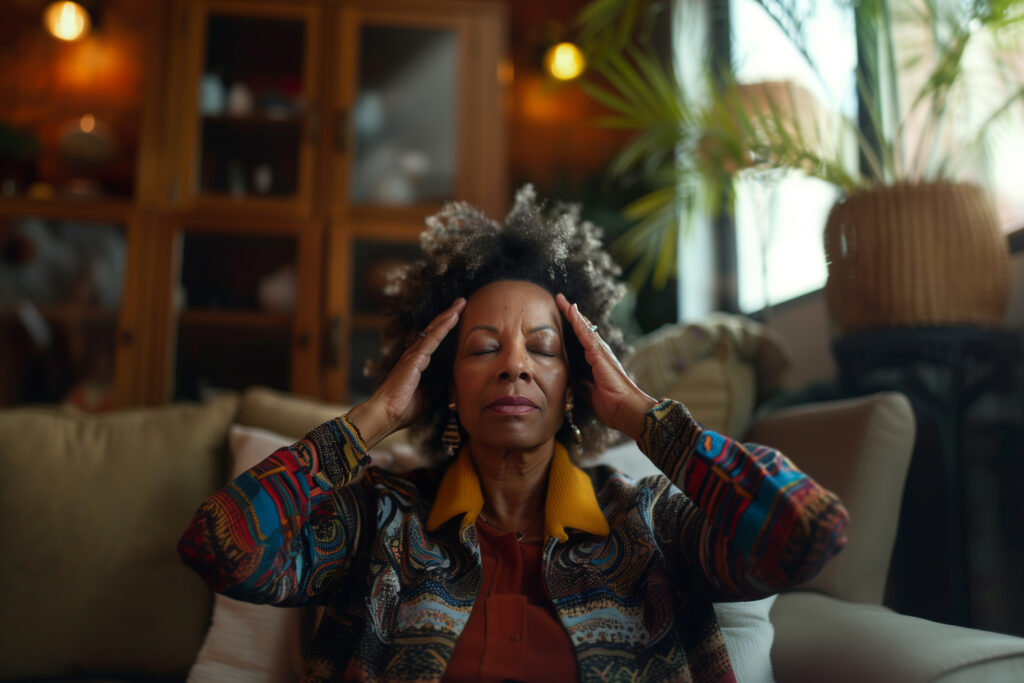Depression is a significant mental health concern among older adults, and understanding its various aspects can lead to better care and support. Here are four essential things to know about depression in older adults.

Image source: www.nia.nih.gov/depression.
Depression Can Be Treated
One of the most important things to know about depression in older adults is that it can be effectively treated. Treatment options include:
- Medication: Antidepressants can be helpful, though it’s crucial to monitor for interactions with other medications that older adults might be taking.
- Psychotherapy: Cognitive-behavioral therapy (CBT) and other types of counseling can address the psychological components of depression.
- Lifestyle Changes: Incorporating regular physical activity, a balanced diet, and ensuring adequate sleep can improve mental health.
- Support Groups: Joining support groups can provide emotional support and reduce feelings of isolation.
For more information, the National Institute of Mental Health provides comprehensive resources on treatment options for depression.
Read: The Link Between Cognitive Decline, Social Isolation, and Alzheimer’s Disease
Signs and Symptoms of Depression Vary
Depression in older adults can present differently than in younger individuals. While common symptoms like persistent sadness and loss of interest in activities can occur, older adults may also experience:
- Unexplained physical aches and pains
- Changes in appetite and weight
- Sleep disturbances, such as insomnia or excessive sleeping
- Fatigue and decreased energy
- Difficulty concentrating or making decisions
- Feelings of hopelessness or helplessness
Key Insight: Recognizing these diverse symptoms is essential for early diagnosis and effective treatment. Regular screenings and open conversations about mental health are crucial.
Friends and Family Can Help Offer Support
Social support plays a vital role in managing depression. Friends and family can help by:
- Encouraging Professional Help: Urge the person to seek medical advice and treatment.
- Providing Emotional Support: Be there to listen without judgment and offer empathy.
- Facilitating Social Engagement: Encourage participation in social activities to combat isolation.
- Helping with Daily Tasks: Assist with chores and errands, which can be overwhelming for someone with depression.
The Family Caregiver Alliance offers resources and tips for those supporting loved ones with depression.
Living a Healthy Lifestyle Can Help Reduce Feelings of Depression
Adopting a healthy lifestyle can significantly impact the management of depression. Key elements include:
- Regular Exercise: Physical activity can boost mood and overall well-being. Activities such as walking, yoga, or swimming are excellent options.
- Balanced Diet: Eating nutritious foods supports physical and mental health.
- Adequate Sleep: Ensuring sufficient rest is crucial for emotional stability.
- Staying Socially Active: Engaging in community activities, hobbies, or volunteering can enhance social connections and reduce feelings of loneliness.
For more detailed guidance, the Mayo Clinic provides tips on living a healthy lifestyle for older adults.
Read: Empowering Caregivers: The Transformative Benefits of Social Day Care
Conclusion
Depression in older adults is a treatable condition that requires awareness, understanding, and proactive management.
By recognizing the signs and symptoms, supporting loved ones, and promoting a healthy lifestyle, we can help improve the quality of life for older adults struggling with depression.
Open conversations and regular mental health check-ups are essential steps toward ensuring that aging individuals receive the care and support they need.
For additional resources, you can visit Mental Health America and the National Institute on Aging. Together, we can make a difference in the lives of older adults facing depression.

